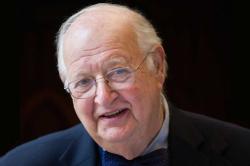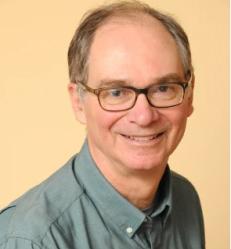The paper summarized here is part of the Fall 2023 edition of the Brookings Papers on Economic Activity (BPEA), the leading conference series and journal in economics for timely, cutting-edge research about real-world policy issues. The conference draft of this paper was presented at the Fall 2023 BPEA Conference (recordings and slides are available via the link). The final version was published in the Fall 2023 issue by Johns Hopkins University Press. Submit a proposal to present at a future BPEA conference here.
Download final paper with online appendix, discussion comments, and general discussion summary
The widening gap in death rates between Americans with and without a four-year college degree shows the U.S. economy is failing working class people, suggests a paper discussed at the Brookings Papers on Economic Activity (BPEA) conference on September 28.
The U.S. economy, as measured by conventional metrics such as growth in gross domestic product (GDP), has recently outperformed other advanced economies. But mortality data paint a different picture, according to “Accounting for the Widening Mortality Gap between American Adults with and without a BA.”
“GDP may be doing great, but people are dying in increasing numbers, especially less-educated people,” Anne Case, one of the authors, said in an interview with The Brookings Institution. “A lot of the increasing prosperity is going to the well-educated elites. It is not going to typical working people.”
She and co-author Angus Deaton, the winner of the 2015 Nobel Prize in economics, both of Princeton University, analyzed U.S. death certificate information, including the age of death, cause of death, and educational attainment. They found that life expectancy for the college educated in 2021 was eight-and-a-half years longer than for the two-thirds of American adults without a bachelor’s degree. That’s more than triple the 1992 gap of about two-and-a-half years.
From 1992 to 2010, both educational groups saw increasing life expectancy but with a greater improvement for people with college degrees. From 2010 to 2019, just before the COVID-19 pandemic, life expectancy rose for people with a four-year degree but stalled and then declined for people without one. And from 2019 to 2021, life expectancy fell for both groups, but much more rapidly for people with less education.
Consequently, the mortality gap between the two groups widened in all three periods, the paper notes. Life expectancy for the college educated, despite the decline during the pandemic, was still better in 2021 than in 1992. But life expectancy for the less-educated was worse.
“The U.S. appears to be the only Western country where life expectancies are trending in different directions” for the more- and less-educated, the authors write.
“All summer there have been news articles about how well the U.S. economy is doing relative to Europe and we’ve been patting ourselves on the back,” Deaton said in an interview. “But if you instead ask how the people are doing, our life expectancy is among the worst.”
The paper builds on the authors’ 2020 book, “Deaths of Despair and the Future of Capitalism,” which sounded an alarm about the dramatic rise in deaths among working class people from suicide, drug overdoses, and alcoholism.
Deaths of despair were the leading driver of the widening mortality gap over the past 30 years, but the gap also widened for most other major causes of death, the paper notes. Cancer mortality, for instance, has declined overall but it has declined more for people with college degrees.
The mortality gap widened explosively during the pandemic, according to the paper. Both COVID-19 deaths and deaths of despair were more common among people without college degrees, who were more likely to work in public-facing jobs, use public transportation, and live in crowded quarters.
“People with BAs have Zoom. People without BAs don’t have Zoom; they have to go to work,” Deaton said.
CITATION
Case, Anne and Angus Deaton. 2023. “Accounting for the Widening Mortality Gap between American Adults with and without a BA.” Brookings Papers on Economic Activity, Fall. 1-44.
Hoxby, Caroline. 2023. “Comment on ‘Accounting for the Widening Mortality Gap between American Adults with and without a BA’.” Brookings Papers on Economic Activity, Fall. 45-65.
Skinner, Jonathan. 2023. “Comment on ‘Accounting for the Widening Mortality Gap between American Adults with and without a BA’.” Brookings Papers on Economic Activity, Fall. 65-73.
-
Acknowledgements and disclosures
This work was supported by a grant from the National Institute on Aging (NIA), given through the National Bureau of Economic Research (NBER). Anne Case serves on the National Advisory Council on Aging for the NIA. Other than the aforementioned, the authors did not receive financial support from any firm or person for this paper, or from any firm or person with a financial or political interest in this paper. Other than the aforementioned, the authors are not currently an officer, director, or board member of any organization with a financial or political interest in this paper. The discussant, Jonathan Skinner was previously a consultant for Sutter Health and is a program director at
the NBER.David Skidmore authored the summary language for this paper. Chris Miller assisted with data visualization.
The Brookings Institution is committed to quality, independence, and impact.
We are supported by a diverse array of funders. In line with our values and policies, each Brookings publication represents the sole views of its author(s).







